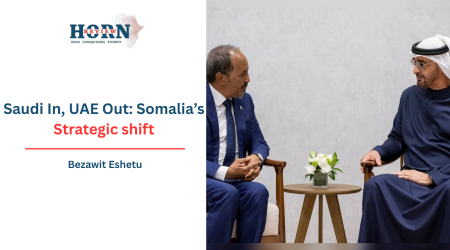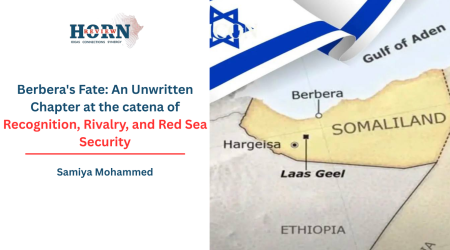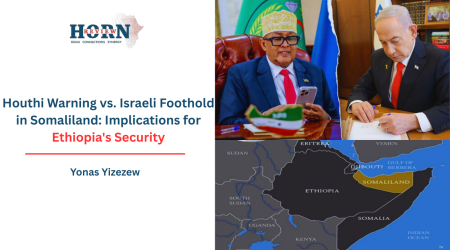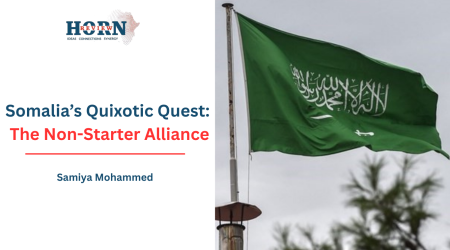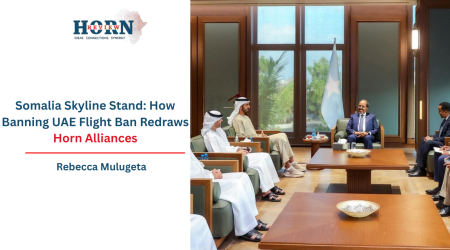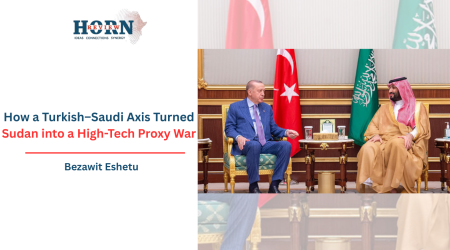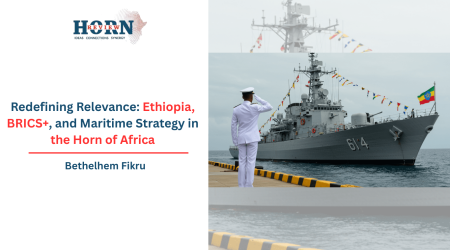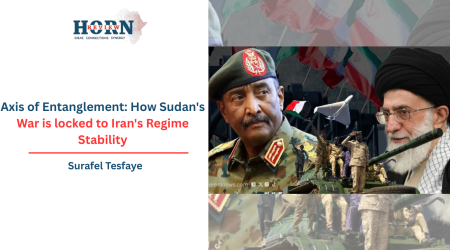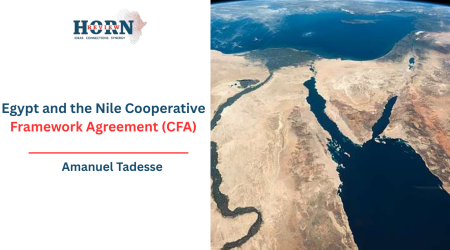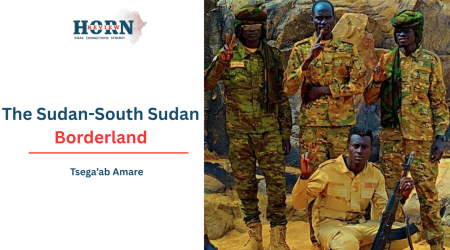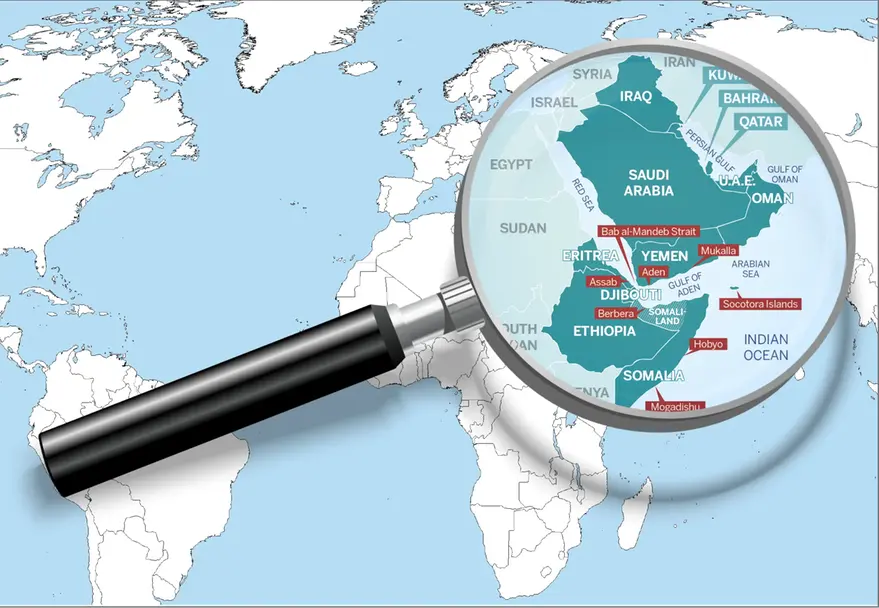
7
Jun
Redefining Power in the Middle East: Gulf Ascendancy, U.S. Alliances, and Ethiopia’s New Opportunity
The power dynamics of the Middle East is undergoing a profound transformation. The Gulf monarchies, particularly Saudi Arabia and the United Arab Emirates, have quietly assumed greater prominence, while traditional regional anchors like Egypt face internal strain and Israel contends with the diplomatic consequences of the Gaza conflict.
The United States, under a more transactional foreign policy, has increasingly prioritized partnerships that deliver tangible returns, deepening its alignment with Gulf powers. In this shifting landscape, new opportunities have opened for countries such as Ethiopia, which now finds room to manoeuvre amid Egypt’s declining influence and the Gulf’s expanding reach into Northeast Africa.
Over the past decade, the Gulf states have scaled up their global ambitions. Saudi Arabia and the UAE have emerged as major investors and regional security players. Armed with sophisticated Western weaponry and vast sovereign wealth, they have poured resources into strategic sectors across Africa, extending their influence far beyond the Arabian Peninsula.
These moves are as much about economics as they are about geopolitics; securing trade routes, ensuring food security, and maintaining regional dominance through carefully cultivated partnerships.
The evolution of U.S. policy has reinforced these trends. The Trump administration has emphasized direct returns, investments, arms deals, and energy cooperation over traditional diplomatic commitments. Gulf rulers have become increasingly central to American calculations, their countries offering investment packages and alignment with Washington’s security concerns. In return, the United States has provided diplomatic support and sustained defense cooperation. Even during crises such as the Gaza war, the U.S. approach has leaned heavily on regional allies to contain fallout, with Egypt and Jordan being pressured to shoulder responsibilities without the traditional assurances or aid packages of earlier eras.
This approach has elevated the Gulf at the expense of other long-standing partners. Egypt, once the undisputed leader of the Arab world, now faces diminished capacity to shape regional events. Its economy is under strain, and its political manoeuvring is constrained by reliance on external aid, energy imports, and support from Gulf patrons. Cairo continues to assert its historical leadership, especially in championing Palestinian issues, but is increasingly forced to strike a balance between principle and necessity. The contradiction between its rhetoric and its dependencies has eroded its ability to act decisively or independently, particularly on core issues like Gaza or the Nile.
Israel, though still a key U.S. ally, no longer enjoys uncontested centrality in the region. While Washington’s support remains robust, especially in defence matters, Israel’s recent actions in Gaza have triggered rare public condemnation from the US and the West. These criticisms, although more subtle, are increasingly evident in Trump’s polices in the region. The Palestinian issue, long sidelined in regional diplomacy, has re-emerged in rhetorical force and is shaping the approach of Israel’s allies. President Trump, visibly frustrated with the continuation of the conflict, has reduced his diplomatic support. For the US, Israel remains a vital partner, but its position is no longer unassailable.
As Egypt’s role contracts and Israel adjusts to new constraints, the Gulf states are advancing into the Horn of Africa and the Red Sea. Through a web of investments and strategic agreements, they are securing influence over ports, transport corridors, and local security forces. The Gulf aims to stabilize and control the trade arteries that connect the Middle East with Africa, Europe, and Asia. By funding infrastructure and supporting friendly regimes, the Gulf monarchies are establishing themselves as indispensable players in a zone traditionally contested by others.
In this context, Ethiopia is emerging as a particularly agile actor. Long a unique case, maintaining strong ties with Israel while often aligning with Arab states on the Nile, Ethiopia is now recalibrating. Prime Minister Abiy Ahmed has courted the Gulf with renewed energy, securing investment, development partnerships, and political goodwill. Gulf capitals see Ethiopia as a promising partner with a large market, geostrategic relevance, and leadership open to pragmatic engagement. This courtship has yielded dividends for Addis Ababa, not least in giving it the confidence and backing to push forward its contentious dam project on the Nile despite Egyptian objections.
Ethiopia has also taken steps to reduce its vulnerability as a landlocked state. Its diplomatic push is now centred around gaining a foothold in the Red Sea, marking a pivotal development in the region. This effort is quietly being welcomed by Gulf powers and other Ethiopian allies, who see it as a stabilizing factor and a counterweight to the insecurities of the critical route. The Gulf’s reaction demonstrates how new alignments are reshaping regional responses. Rather than rallying against this effort, the Gulf states have shown a growing willingness to support Ethiopia’s assertion of its interests.
At the same time, Ethiopia has preserved its long-standing ties with Israel, recognizing the strategic value of that relationship. Cooperation continues quietly even as Addis Ababa deepens its bonds with the Gulf. By maintaining multiple partnerships and avoiding overdependence on any single ally, Ethiopia is playing a nuanced diplomatic game. It is neither abandoning its old friends nor tying itself exclusively to new ones. Instead, it is positioning itself as a bridge between shifting power centres.
The implication is clear: Ethiopia is no longer merely a subject of regional competition but a strategist in its own right. It is leveraging the decline of Egypt’s hegemony, the recalibration of Israel’s role, and the Gulf’s outward drive to assert a more independent and influential regional role. With Gulf states increasingly involved in Nile politics and Red Sea dynamics, any regional negotiation will now include voices sympathetic to Ethiopian development goals. And by securing a maritime corridor, Addis Ababa aims to break a longstanding constraint that once left it dependent on neighbours for trade access.
In the fluid, transactional environment of Middle Eastern politics today, Ethiopia is charting a new course. Its ability to adapt, balance old loyalties, and harness new alliances suggests a maturing foreign policy, one capable of turning regional upheaval into national opportunity. As the old hierarchies give way to a more multipolar Middle East, Ethiopia should enhance its strategic dynamism and position itself as a formidable regional power.
By Mahder Neisbu,Researcher,Horn Review

